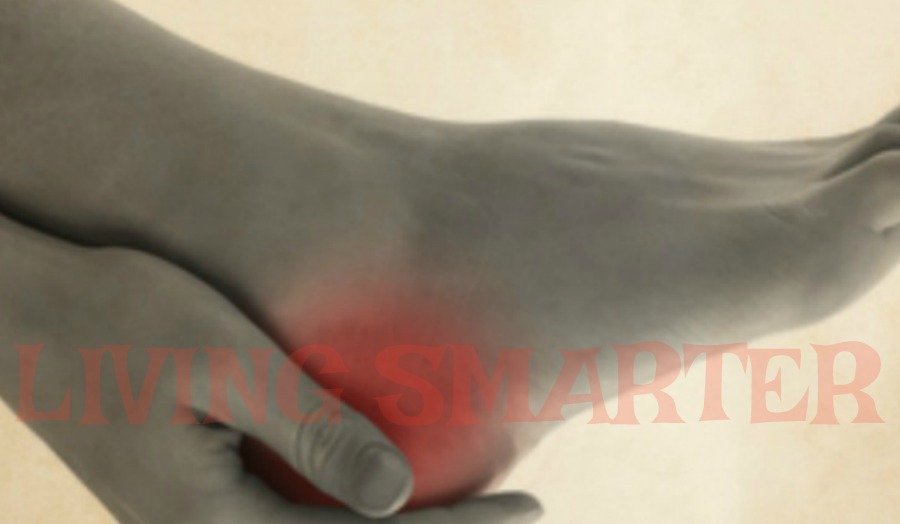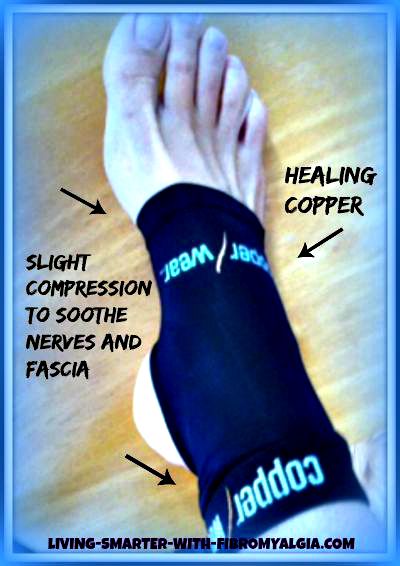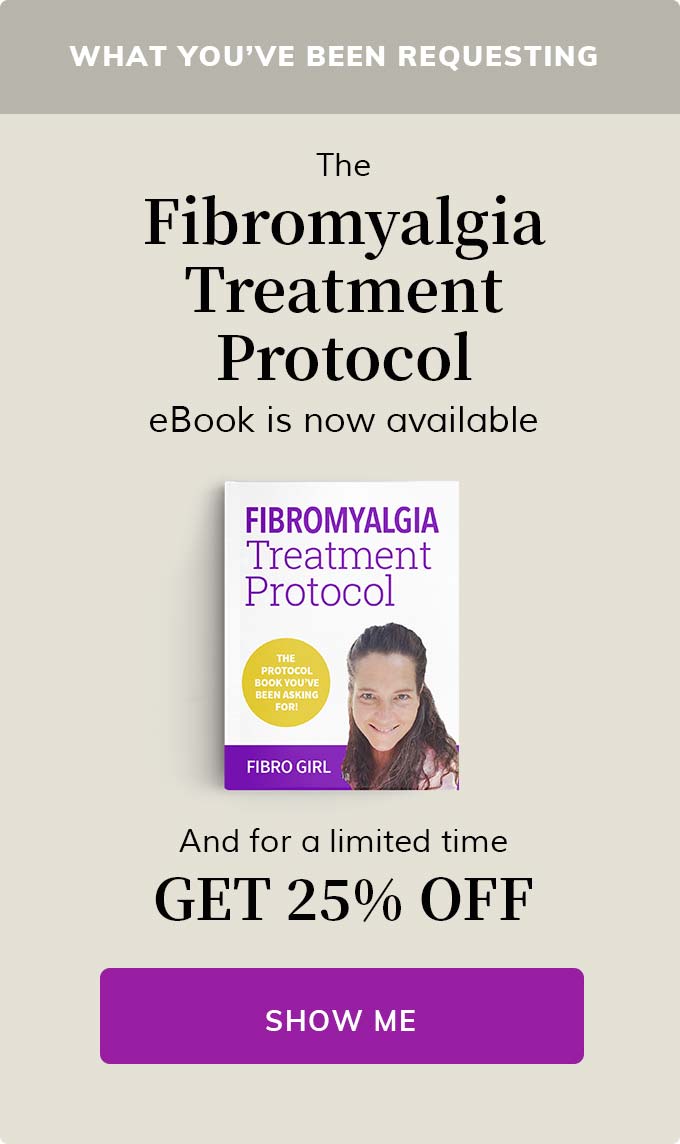Control Fibromyalgia Foot Pain

When
fibromyalgia affects the lower part of the body, this is somewhat different
than upper body pain due to the weight bearing nature of both legs and feet.
Although this is just one area of the body affected, I rarely meet a person
with fibromyalgia who does not have some kind of leg and/or fibromyalgia foot
pain.
Fibromyalgia foot pain can be
exacerbated by multiple trigger points in the lower body, overactive nerves,
and even ongoing weakness in the legs, knees, and ankles.
Balance
Your Sitting, Standing,
or Lying Time
The
interesting thing about fibromyalgia pain in many parts of the body including
the lower quadrant and feet, is that it doesn’t really matter whether you are
sitting, standing or lying down.
Each of these daily activities of living has
its very own disadvantage to the fibro body. We often hear about restless leg syndrome, but what about restless feet and toes?
Overactive nerves in the feet can lead to restless feelings in the feet and the need to tap or move the toes, especially in the morning.
Too much of any one activity or
too long being sedentary can increase symptoms.
Standing can increase throbbing
types of pain whereas lying down for extended periods (even eight hours of
sleeping) can contribute to nerve pain and myofascial constriction in the feet,
extending into the ankles, calves and tender areas around the knees.
Foot
Structure Affects Fibromyalgia
Foot Pain
Again,
because of the weight bearing nature of our feet, we have to be even more
diligent about caring for and addressing this part of the fibro body.
There are different types of foot structures
that can also contribute to fibromyalgia foot pain. These range from high or
low arch to plantar fasciitis, plantar warts and Morton’s toe.
Not that all of
these are connected to fibromyalgia, but when we have fibro, these can increase
the propensity to pain and symptoms in the feet.
For instance, if you have a
high arch, this can increase pain not only within the bottom of the arch, but
also on the very top of the feet (under the shoelace area) therefore
exacerbating fibromyalgia foot pain.
Swap
Out Shoes During The Day
Even
if you wear the most comfortable shoes during the day, it is a good idea to
switch out shoes during any given day. Have at least 2 pairs of comfortable
shoes that you can rotate such as both fitness and leisure.
I find rotating
shoes can make a difference in levels of foot pain and adapting to any one
shoe.
Wearing orthotic inserts or getting them custom made by a foot doctor can
also greatly support us when we have fibromyalgia foot pain. I always add my
own orthotic inserts to my athletic shoes for extra support and comfort.
Wearing (breaking in) new shoes can cause increased pain and even flares. Break them in slowly. Never wear new shoes for extended periods of time. Even the new tread on the bottom of athletic shoes can be "jarring" to the body.
You may need to also avoid sandals with a wedge in between the big toe and second toe, this can be very uncomfortable and cause toe pain during and after wearing these kind of sandals.
Use Myofascial Release Techniques
As
nice as it sounds to walk on a beach or on the grass barefoot, this can be
difficult for people with very sensitive feet and/or overactive nerves in the
feet.
If you find it difficult due to a high arch or myofascial constriction,
work on the under sides of your feet as often as possible.
Fascia can be
released with a foot relaxer or a tennis ball. Reflexology on the feet is also
a great idea as it will help to relax the entire body. It can be done either by a trained reflexologist or by yourself. Be sure
to go slow.
The great advantage to reflexology is that we can positively affect
other areas of the body that correspond to certain pressure points.
For
instance, with any GI pain or congestion, I find that holding those specific
points under the feet (middle underside of the foot) can really relax the GI
system, which has a nervous system of its own and therefore can greatly benefit
from this relaxing work.
Keep the feet warm when possible (especially with nerve pain) and try the foot bath below for greater circulation.
Copper
Wear Compression
Ankle/Foot Sleeves
Here in the adjacent picture, I show one of my favorites, copper wear compression ankle sleeve. This foot/ankle sleeve fits gently over the foot and the copper is healing.
It provides very slight hugging compression and support for increased blood flow and oxygen flow around these vulnerable areas of the fibro body.
These are great for everyday use or to sleep in. If you are like me and wake with burning or nerve issues in your feet, these feet/ankle sleeves are well worth a try to at least reduce the severity of symptoms. Also helpful for restless feet and toes. We depend on our feet so we must give them as much care as possible.
Also, I have a very high arch and I've found the Strutz Cushioned Arch Supports to be very helpful as well as inexpensive. Great arch supporters!
- Instant support and lasting comfort
- Promotes balance and body alignment
- Wear with any shoe - even barefoot
- One size fits most and unisex
Be Selective With Socks
When
it comes to socks, be sure to wear socks that have enough friction inside the
shoe so that your foot does not slide in your shoes, as this can cause over
compensation, foot fatigue and increase the propensity to fibromyalgia foot
pain in a shorter amount of time.
You see, socks that are too soft can cause the feet to move around in the shoe.
However, we also want to choose socks that have a greater amount of
cushioning on the bottom, and even though it might not be fashionable, make your own fashion
statement as I do by wearing light ankle socks with your sandals if needed. Sensitive feet
and sandals do not always get along.
Cross training socks and running socks are great because they provide that extra cushioning on the bottom of the sock right where we need it.
As
previously mentioned, and to emphasize the point, it is a good idea to switch
out shoes during the day. Even your favorite leisure shoes can become
uncomfortable if worn for longer periods. The idea is to not put the feet in
any one position for too long.
Some fitness shoes or running shoes can have
higher heel dimensions, and although great for running or walking, we need to
change shoes after exercise to avoid over compensation and fatigue.
My Foot Bath Is A
Good Remedy
Finally, a good remedy I use is a “foot bath”.
(This can be done in a full bath OR as a foot bath in warm water)
· 2-3 cups Epsom salt (one cup for foot bath only)
· ½ cup sea salt (or baking soda for most cost effective)
· 2-3 Tbsp. ginger root powder
The combination of salt and magnesium here works to balance and calm the foot nerves, while the ginger root powder helps to decrease inflammation in the body.
NOTE: People often ask if whole ginger root can be used, however, for this application, the ginger root powder is better dispersed in the water and therefore more easily utilized by the body.
The foot bath can be just as effective when a full bath is not an option. We absorb well through our feet, and this can also be more cost effective when less salts and ingredients are used.
Links To Related Reading:
Before you leave, my sitemap can provide you with a "God's-eye" view of this website laid out in "outline format".
Stay connected by joining our unique Email here at Fibro Repair Email
HOME > FIBROMYALGIA SYMPTOMS > TOP OF PAGE
Didn't find what you were looking for? Search for it:
living-smarter-with-fibromyalgia.com
©2013-2024 All Rights Reserved
FibroFitPeople, LLC ;©2024 All Rights Reserved











